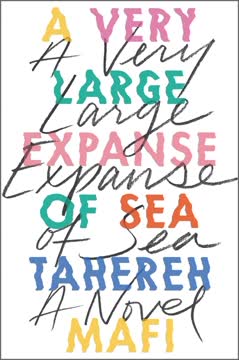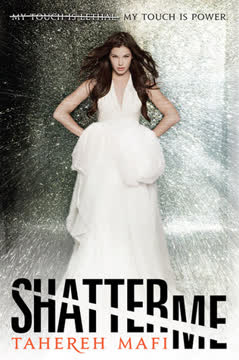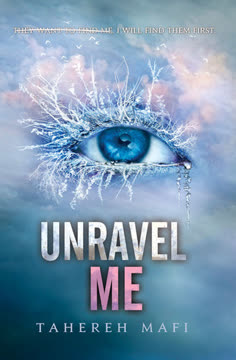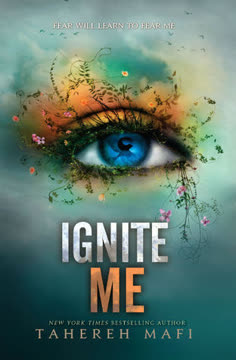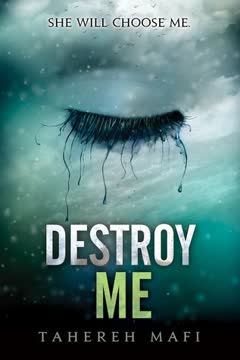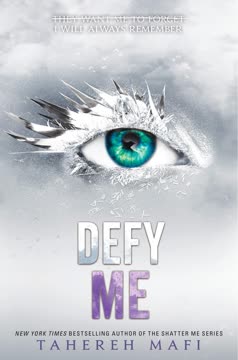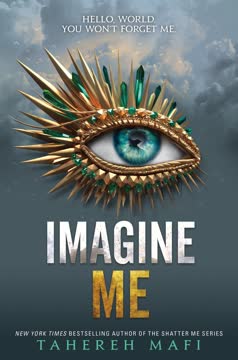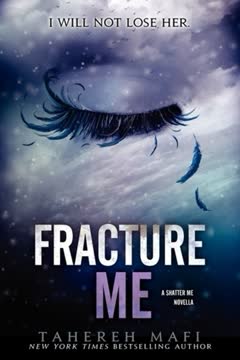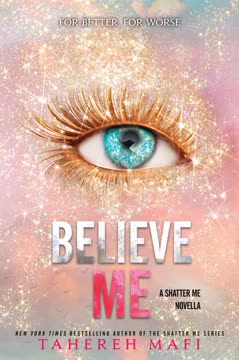Plot Summary
New School, Old Fears
Shirin, a sixteen-year-old Muslim girl, starts at her third high school in two years, already bracing for the racism and ignorance she knows will come. She's learned to keep her head down, avoid eye contact, and expect the worst. Her hijab makes her a target for stares, slurs, and assumptions—her English is perfect, but teachers still try to send her to ESL. She's exhausted by the cycle of being othered, misunderstood, and attacked, both physically and emotionally, especially in the post-9/11 climate. The only solace she finds is in music, which she listens to secretly under her scarf, and in the hope that if she can just survive high school, she'll finally be free to live on her own terms.
Family Armor and Isolation
At home, Shirin's Iranian immigrant parents are loving but tough, shaped by their own traumas and convinced their children's struggles are trivial by comparison. Her brother Navid is popular and handsome, easily fitting in, while Shirin is isolated by her visible difference. She doesn't confide in her parents about the daily microaggressions and outright attacks, knowing they'll only tell her to toughen up. Books and fashion become her escape, and she spends her time sewing and thrifting, trying to create beauty in a world that feels hostile. Despite the loneliness, she's fiercely independent, determined not to let anyone see how much it hurts.
Breakdancing Beginnings
Navid, Shirin's brother, decides to start a breakdancing crew with his friends, inviting Shirin to join. For the first time, she feels a spark of excitement—breakdancing is something she's admired from afar, and now she has a chance to be part of something. The crew, made up of Navid, Carlos, Jacobi, and Bijan, becomes a small, supportive community. Practice is hard, but it's a joyful challenge, and Shirin finds herself growing stronger, both physically and emotionally. The crew's camaraderie offers her a rare sense of belonging, and she begins to hope that maybe, in this new town, she can carve out a space for herself.
Unexpected Connections
In biology class, Shirin is paired with Ocean, a popular, good-looking white boy with an unusual name. Their partnership is awkward at first—Ocean is curious but clumsy, making assumptions about Shirin's life and religion. Shirin, used to being exoticized or ignored, keeps her guard up, responding with sarcasm and distance. But Ocean is persistent, reaching out to her after school to work on their project. Their conversations, first over text and then on AIM, are tentative and filled with misunderstandings, but there's a genuine curiosity on both sides. For the first time, Shirin wonders if someone might want to know her for who she is, not just what she represents.
Ocean's Curiosity
Ocean's interest in Shirin deepens, and he tries to break through her defenses with kindness and questions. He's fascinated by her breakdancing, her fashion, and her refusal to conform. Shirin is wary—she's been burned before by people who treat her as a curiosity rather than a person. Still, Ocean's sincerity is disarming, and their late-night chats become a lifeline for both. Shirin feels the pull of attraction but is terrified of what it could mean—for her safety, her reputation, and her heart. She's never had a boyfriend, and the idea of letting someone in, especially someone so different from her, is both thrilling and terrifying.
Building Walls, Breaking Down
Shirin's anger at the world is both her shield and her prison. She pushes people away, convinced that caring will only lead to pain. But as she grows closer to Ocean and her breakdancing crew, she begins to question whether her anger is helping or hurting her. A conversation with Jacobi, who recognizes her pain, makes her realize that happiness can be a form of resistance. She starts to let herself feel joy, even as she remains wary. The walls she's built to protect herself begin to crack, and she wonders if it's possible to be both strong and open.
Small Acts of Defiance
Shirin finds small ways to assert her identity—through fashion, through dance, through refusing to be invisible. She stands up to teachers who stereotype her, ignores the taunts in the hallway, and pours her energy into perfecting her breakdancing moves. The crew practices for a school talent show, and Shirin is both excited and terrified at the prospect of performing in front of her peers. Ocean continues to reach out, and their connection deepens, but Shirin is haunted by the knowledge that any happiness she finds is precarious, always at risk of being snatched away by the next act of cruelty.
Finding Community
The breakdancing crew attends their first battle, and Shirin is amazed by the diversity and acceptance she finds there. In this world, talent matters more than appearance, and for the first time, she feels seen for her skills, not her scarf. The crew's bond grows stronger, and Shirin begins to believe that she can be more than just the "girl with the thing on her head." The experience gives her hope that there are places where she can belong, and that maybe, just maybe, she can find happiness without having to hide who she is.
Seeing and Being Seen
A classroom experiment forces Shirin to confront the pain of being invisible—her classmate admits he doesn't "see" her at all. The humiliation is raw, and Shirin flees, only to be followed by Ocean, who offers comfort and solidarity. Their friendship deepens, and Shirin is forced to reckon with her own assumptions about others, realizing that she, too, has built walls that keep people out. The experience is both painful and transformative, pushing her to reconsider what it means to be seen, and to see others in return.
Pancakes and Vulnerability
A spontaneous trip to IHOP with Ocean becomes a turning point. Away from the pressures of school, they talk honestly about their lives, fears, and dreams. Ocean confesses his attraction to Shirin, calling her beautiful—a word she's rarely heard directed at her. The vulnerability is overwhelming, and Shirin is both elated and terrified. She wants to believe in the possibility of happiness, but the risks feel enormous. Still, she allows herself to hope, and their relationship takes its first tentative steps toward something more.
The Risk of Friendship
As Shirin and Ocean grow closer, the risks become more apparent. Ocean is a star basketball player, and their relationship draws unwanted attention. Rumors swirl, and Shirin becomes the subject of gossip, harassment, and even physical attacks. A photo of her without her scarf is circulated, a violation that leaves her feeling exposed and betrayed. Ocean tries to protect her, but the backlash intensifies, threatening both their relationship and his future. Shirin is forced to confront the reality that love, for her, is never simple—it's always political, always dangerous.
The First Real Touch
A stolen kiss in Ocean's car changes everything. The intensity of their connection is undeniable, but so are the consequences. Ocean's status as a basketball star makes their relationship a lightning rod for controversy, and Shirin is caught between her desire for happiness and her fear of causing harm. The world intrudes in cruel ways—food thrown at her, photos taken without consent, threats from Ocean's coach and mother. Shirin's sense of agency is stripped away, and she's forced to make an impossible choice: protect herself and Ocean by ending things, or fight for a love that seems doomed from the start.
Anger, Happiness, and Hope
Despite the mounting pressure, Shirin finds moments of happiness—in dance, in friendship, in the small acts of kindness that punctuate her days. The breakdancing crew wins the school talent show, and for a brief moment, Shirin is celebrated rather than shunned. The hypocrisy of her classmates is infuriating, but she learns to focus on the good, to let herself feel joy even in the midst of pain. Her relationship with Ocean is both a source of strength and vulnerability, and she learns that love can be an act of resistance, a way to reclaim her humanity in a world determined to deny it.
The World Intrudes
The backlash against Shirin and Ocean reaches a fever pitch. Ocean is pressured to end the relationship for the sake of his basketball career, and Shirin is threatened by his coach and mother. A mass email accuses Ocean of supporting terrorism, using their relationship as evidence. The pressure becomes unbearable, and Shirin, convinced she's ruining Ocean's life, breaks up with him. The pain is overwhelming, and both are left reeling, forced to navigate the aftermath of a love that was never allowed to flourish.
Talent Show Spotlight
The breakdancing crew's victory at the talent show brings Shirin a new kind of attention. Suddenly, she's popular, invited to parties, and treated as "cool" rather than dangerous. The shift is dizzying and infuriating—her classmates' acceptance is conditional, based on her performance rather than her personhood. Shirin is forced to confront the fickleness of public opinion and the emptiness of popularity. She realizes that true belonging can't be granted by others; it has to be claimed from within.
Betrayal and Exposure
Shirin's relationship with Ocean is exposed in the most public and humiliating ways. She's photographed without her scarf, her privacy violated, her identity weaponized against her. Ocean is suspended, then expelled after standing up to his coach. The cost of their love is steep—friendships lost, futures derailed, reputations destroyed. Yet, in the wreckage, Shirin finds clarity. She refuses to let the hatred define her, choosing instead to focus on the love and strength she's found in herself and her community.
The Cost of Love
Shirin and Ocean are forced apart by forces beyond their control—racism, parental pressure, institutional cowardice. Shirin, convinced she's not worth the sacrifices Ocean is making, ends things for good. Both are devastated, but the experience leaves them changed. Shirin learns to see people as individuals, not just as threats, and to let go of some of her anger. Ocean, too, is transformed, learning the cost of standing up for what he believes in. Their love, though brief, becomes a touchstone—a reminder that hope and connection are possible, even in the darkest times.
Letting Go, Holding On
As graduation approaches, Shirin prepares to move again, leaving behind the town, the school, and Ocean. The pain of separation is sharp, but she's learned to carry hope with her. She reconnects with old friends, makes new ones, and finds solace in dance and family. Ocean, too, finds a measure of peace, rebuilding his relationship with his mother and forging a new path. Their story ends not with a fairy-tale reunion, but with the promise that love, once found, can never be entirely lost.
Second Chances, Last Goodbyes
In the final days before her move, Shirin reflects on all she's learned—the importance of seeing people as individuals, the necessity of choosing happiness, the power of love to heal and transform. She and Ocean share a bittersweet farewell, promising not to give up on each other. The story closes with Shirin looking to the future, her heart battered but unbroken, determined to keep fighting for her place in the world, and to believe, always, in the possibility of hope.
Characters
Shirin
Shirin is a sixteen-year-old Iranian-American Muslim girl who wears hijab by choice, despite the daily onslaught of racism, ignorance, and violence she faces in post-9/11 America. Her sharp wit and anger are both armor and wound, protecting her from a world that constantly tries to define and diminish her. She's creative, passionate about fashion and breakdancing, and deeply loyal to her family, especially her brother Navid. Shirin's journey is one of learning to balance self-protection with vulnerability, to let herself feel joy and love even when it feels dangerous. Her relationship with Ocean challenges her assumptions about others and herself, forcing her to confront her own prejudices and fears. By the end, Shirin emerges stronger, more open, and determined to claim her place in the world on her own terms.
Ocean
Ocean is a popular, good-looking white boy and star basketball player, but beneath the surface he's sensitive, thoughtful, and searching for meaning beyond the expectations placed on him. His curiosity about Shirin is genuine, and he's willing to risk his reputation and future to be with her, even as the world turns against them. Ocean's home life is fractured—his mother is emotionally distant, and he's burdened by the pressure to succeed. Through his relationship with Shirin, Ocean learns to question the status quo, to stand up for what he believes in, and to see the world through new eyes. His love for Shirin is transformative, both for himself and for her, and his willingness to be vulnerable becomes a source of strength.
Navid
Navid is Shirin's older brother, a handsome, popular senior who navigates the world with ease, despite sharing the same background as his sister. He's dyslexic, which has made school a struggle, but he's resourceful, determined, and fiercely loyal to Shirin. Navid's decision to start a breakdancing crew is both an act of rebellion and a way to create community for himself and his sister. He's supportive, sometimes overbearing, but always has Shirin's best interests at heart. Navid's journey is one of learning to balance his own desires with his responsibilities to his family, and to recognize the unique challenges his sister faces.
Carlos
Carlos is one of Navid's best friends and a member of the breakdancing crew. Initially skeptical of Shirin's abilities and her place in the group, he quickly becomes a supportive ally, offering both tough love and genuine encouragement. Carlos's humor and honesty help break down barriers, and his willingness to stand up for Shirin in the face of adversity is a testament to his character. He represents the possibility of cross-cultural friendship and the importance of community.
Jacobi
Jacobi is another member of the breakdancing crew, known for his calm demeanor and deep empathy. He recognizes the anger and pain in Shirin, having experienced similar struggles himself, and encourages her to choose happiness as an act of resistance. Jacobi's presence is grounding, offering perspective and support when Shirin needs it most. His journey is one of healing, learning to channel anger into something positive, and helping others do the same.
Bijan
Bijan is the final member of the breakdancing crew, openly gay (or "eighty percent gay," as he jokes), and still figuring out his identity. He brings humor and lightness to the group, but also faces his own challenges with acceptance and belonging. Bijan's friendship with Shirin is marked by mutual respect and understanding, and his willingness to be himself, even in the face of uncertainty, is a quiet act of bravery.
Shirin's Parents
Shirin's parents are Iranian immigrants who have survived war, revolution, and displacement. They are loving and hardworking, determined to give their children a better life, but their own traumas make them emotionally distant and unsympathetic to Shirin's struggles. They value education, tradition, and resilience, but often fail to see the unique challenges their daughter faces as a visibly Muslim girl in America. Their relationship with Shirin is complex—full of love, misunderstanding, and unspoken pain.
Yusef
Yusef is a Lebanese-American Muslim student who becomes friends with Navid and Shirin. He represents an alternative path for Shirin—someone who understands her background without explanation, who offers acceptance and ease. Yusef's presence highlights the complexities of identity and belonging, and his friendship with Shirin is marked by mutual respect and the possibility of something more, though it never develops beyond friendship.
Coach Hart
Coach Hart is Ocean's basketball coach, obsessed with winning and maintaining the school's reputation. He becomes the primary antagonist, threatening Shirin and Ocean, manipulating situations to protect his own interests, and embodying the institutional racism that pervades the school. His actions are driven by fear, prejudice, and a desire for control, making him a formidable obstacle to Shirin and Ocean's happiness.
Amna
Amna is another Muslim girl at school who initially judges Shirin for not living up to her standards of religious behavior. Over time, she reveals her own struggles with racism and belonging, and the two become friends. Amna's journey mirrors Shirin's in many ways, highlighting the diversity of Muslim experiences and the importance of solidarity in the face of adversity.
Plot Devices
Duality of Visibility and Invisibility
The novel's central device is the tension between being hyper-visible (as a hijabi Muslim girl) and completely invisible (as a person, an individual). Shirin is constantly seen as a symbol, a stereotype, or a threat, but rarely as herself. This duality is explored through her interactions at school, her relationship with Ocean, and her experiences with both racism and fleeting acceptance. The narrative structure mirrors this tension, alternating between moments of intense scrutiny and profound isolation.
Breakdancing as Metaphor
Breakdancing serves as both a literal and metaphorical device—a way for Shirin to claim space, express herself, and find community. The physicality of dance mirrors her emotional journey, from guarded and tentative to bold and expressive. The crew's progression from novices to talent show winners parallels Shirin's own growth, and the battles they face on the dance floor echo the battles she faces in life.
Epistolary and Digital Communication
Much of Shirin and Ocean's relationship develops through digital communication—AIM chats, texts, and late-night phone calls. These private conversations allow for vulnerability and honesty that is impossible in public. Shirin's journal, too, becomes a crucial plot device, offering insight into her thoughts and feelings, and ultimately serving as a bridge for reconciliation when Ocean reads it. The use of digital and written communication highlights the gap between public perception and private reality.
Foreshadowing and Cyclical Structure
The novel is structured around cycles—of moving, of being othered, of building and losing connections. Shirin's family's constant relocations foreshadow the impermanence of any happiness she finds, and the threat of moving hangs over her relationship with Ocean from the start. The cyclical nature of acceptance and rejection at school, too, underscores the fickleness of public opinion and the difficulty of finding lasting belonging.
Social Commentary and Direct Address
Shirin's narration is direct, often breaking the fourth wall to address the reader, challenge stereotypes, and expose the absurdity of racism and sexism. The novel uses classroom experiments, public humiliations, and moments of solidarity to comment on the broader social context, forcing both characters and readers to confront uncomfortable truths about prejudice, privilege, and the cost of silence.
Analysis
A Very Large Expanse of Sea is a raw, honest exploration of what it means to be a visibly Muslim teenager in post-9/11 America, grappling with racism, isolation, and the longing for connection. Through Shirin's eyes, Tahereh Mafi exposes the daily microaggressions and overt violence that shape the lives of marginalized youth, while also celebrating the resilience, creativity, and hope that allow them to survive and thrive. The novel's central love story is both a source of joy and a crucible, forcing Shirin and Ocean to confront the limits of their own courage and the power of societal forces to shape their destinies. Ultimately, the book is a call to empathy—to see people as individuals, to resist the urge to stereotype or judge, and to recognize the humanity in everyone. It's a story about the cost of anger and the necessity of hope, about the ways love can both wound and heal, and about the importance of claiming one's own narrative in a world determined to write it for you. In a time of rising xenophobia and division, A Very Large Expanse of Sea is a timely, necessary reminder that the fight for dignity and belonging is both deeply personal and profoundly universal.
Last updated:
Review Summary
A Very Large Expanse of Sea received mixed reviews, with many praising its raw emotion, authentic representation, and powerful storytelling. Readers appreciated the exploration of Islamophobia and the struggles of a Muslim teenager post-9/11. The romance was generally well-received, though some felt it overshadowed deeper themes. Critics noted issues with character development and pacing. Many readers found the book eye-opening and emotional, while others felt it missed opportunities to delve deeper into certain aspects of Muslim life and culture.
Download PDF
Download EPUB
.epub digital book format is ideal for reading ebooks on phones, tablets, and e-readers.
